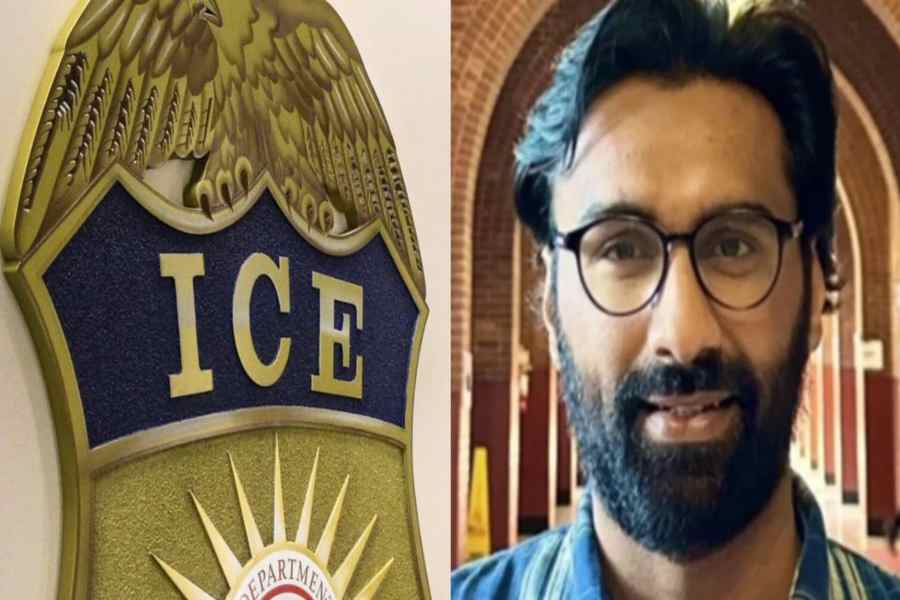A Georgetown University researcher has been detained by immigration authorities, raising concerns about academic freedom and government crackdowns on activists in higher education. The Department of Homeland Security confirmed Wednesday that Badar Khan Suri, an Indian national and postdoctoral associate, was taken into custody, intensifying the ongoing debate surrounding immigration enforcement and civil liberties under the Trump administration.
Suri, who was studying and teaching on a student visa, had been researching peacebuilding efforts in Iraq and Afghanistan. Georgetown University released a statement asserting that Suri was legally present in the U.S. and had not been implicated in any illegal activity. “We are not aware of him engaging in any unlawful behavior, and we have not received a reason for his detention,” a university spokesperson told CBS News. “We stand by our commitment to free and open inquiry, even when ideas may be difficult, controversial, or objectionable. We expect the legal system to adjudicate this case fairly.”
However, the Department of Homeland Security released a conflicting statement, alleging that Suri was actively spreading Hamas propaganda and promoting antisemitism on social media. DHS further claimed that Suri had “close connections to a known or suspected terrorist, who is a senior adviser to Hamas.” Secretary of State Marco Rubio declared on March 15 that Suri’s activities and presence in the United States rendered him deportable under the Immigration and Nationality Act, though specific details regarding his detention remain unclear.
According to ICE’s online detention locator, Suri is currently being held at an ICE facility at Alexandria International Airport in Louisiana. His legal team has filed a writ of habeas corpus challenging his detention, and CBS News has reached out to his attorney for comment.
Suri’s detention comes amid a broader crackdown on activists across U.S. college campuses, particularly those involved in pro-Palestinian demonstrations. This follows the controversial March 8 arrest of Columbia University student and green card holder Mahmoud Khalil. Khalil, a 30-year-old Algerian national born in Syria to Palestinian parents, was arrested in New York City and is now being held in the same Louisiana detention facility. His arrest occurred in front of his eight-months-pregnant wife, further fueling criticism of the administration’s actions.
DHS has alleged that Khalil’s arrest was “in support of President Trump’s executive orders prohibiting anti-Semitism,” stating that the former student-led activities aligned with Hamas. However, no concrete evidence or formal criminal charges have been presented against him. The lack of transparency in both Khalil’s and Suri’s cases has drawn scrutiny from civil rights organizations, which argue that these detentions could set a dangerous precedent for academic institutions and student activism.
Legal proceedings for Khalil have also been contentious. A federal judge ruled Wednesday that his case will be heard in New Jersey, rather than in New York or Louisiana. Khalil was initially held in a New Jersey detention center before being transferred to Louisiana, where Suri is also being detained.
The escalating tensions between federal authorities and academic institutions have led to growing concerns over civil liberties, freedom of speech, and the role of universities in safeguarding their students and faculty. Advocacy groups, legal experts, and educators are calling for greater transparency and due process in these cases, arguing that politically motivated detentions undermine fundamental democratic values.
As the legal battles unfold, the detentions of Suri and Khalil have become focal points in the broader conversation about immigration policy, national security, and the rights of noncitizens in the U.S. The outcomes of these cases could have significant implications for international scholars, students, and activists residing in the country, potentially reshaping the landscape of academic freedom and governmental oversight in higher education.
